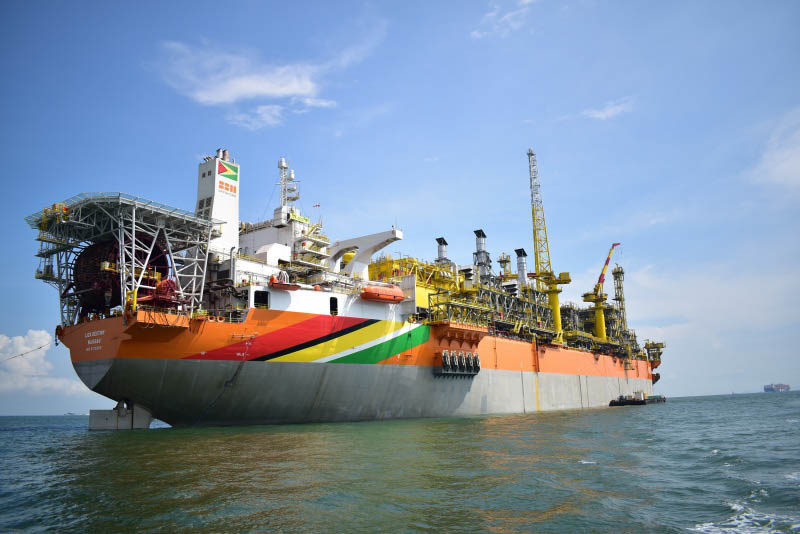The Environmental Protec-tion Agency (EPA) has reaffirmed its dedication to overseeing produced water discharge (PWD) by the Floating Production, Storage and Offloading (FPSO) vessels operating in the offshore oil and gas production. The announcement comes as part of the EPA’s broader mission to negate any possible harm due to extraction.
Produced water, a byproduct of offshore oil and gas extraction, contains a mixture of chemicals, pollutants, and naturally occurring substances that can harm aquatic ecosystems if not properly managed. Recognizing the potential environmental impact, the EPA said, it was taking a proactive stance to regulate and monitor PWD, with an emphasis on encouraging responsible industry practices.
According to a press release from the EPA, Executive Director Kemraj Parsram noted that the agency is live-monitoring the release of produced water.
“We receive live feeds of the PFW releases from the FPSOs and monitor those constantly. We also undertake independent sampling of water quality to ensure that our standards are met,” he was quoted as saying.
EPA highlighted that PFW was required to meet the MARPOL Annex I Regulation 14 requirement which states that any discharge to the sea after treatment must have an oil content that does not exceed 15 mg/L (parts per million), with a maximum measurement on any day of 42 mg/L and a monthly average of less than 29 mg/L. It was also noted that the temperature of the discharge must not exceed three degrees Celsius of the ambient (surrounding) seawater temperature within 100 meters radius of the discharge point.
“The EPA would never allow any discharges that could be described as ‘hot, greasy water’ from ever occurring in Guyanese waters. Our requirement is that any impacts have to be well within acceptable levels and as low as reasonably practicable. We use continuous independent satellite monitoring to detect even the slightest oil sheen on the waters and thermal imaging to detect every gas flaring. We ensure that our standards are being met every day,” Parsram was quoted as saying.
Despite this close oversight, the release said, the EPA was committed to increasing its monitoring of discharges from the FPSOs and developing an independent review of the monitoring data with the help of international experts. It added that the EPA was committed to providing the people of Guyana with transparent, verifiable and reliable reporting of the impacts of the petroleum industry in Guyana.






